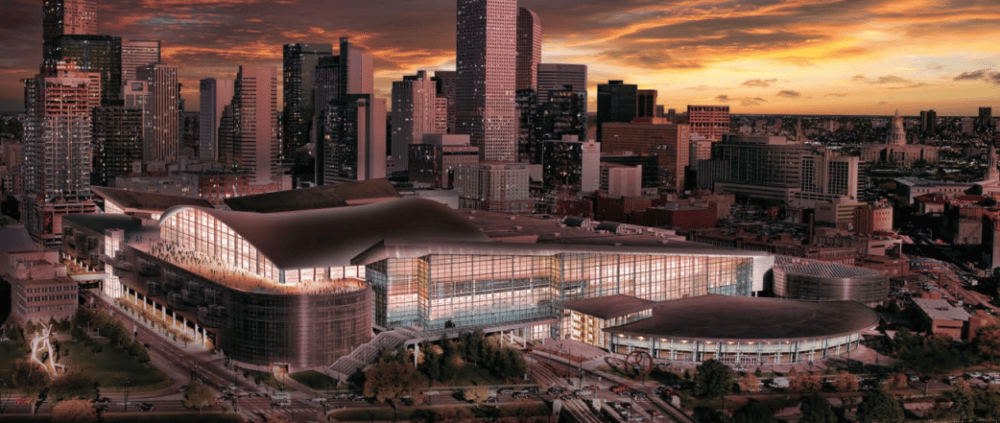
Denver City Council gave its blessing to a new taxing entity Monday that, if a majority of affected hotel owners agree, will provide a way to pay for increasing costs at the Colorado Convention Center.
The Tourism Improvement District will function similarly to a business improvement district, with special taxes collected within the district and administered by a board for needs within the district. In this case, the district encompasses the entire city and county. The special tax is a 1 percent increase in the lodging tax paid by hotels with 50 rooms or more, and the need is for a revenue source to cover the rising costs of a planned expansion of the Colorado Convention Center.
The expansion plans call for 80,000 square feet of new ballroom/meeting space, a 50,000-square-foot rooftop terrace on the roof and additional back-of-house space, as well as upgrades to the building’s wireless technology and other equipment. It was originally estimated to cost about $104 million, but now that number is $223 million.
Supporters say the improvements are needed for the convention center to remain competitive and continue to attract a full range of events. And the more conventions that are held in Denver, the more business the city's hotels get. It was the hotel industry itself that suggested the 1 percent tax increase as a way to deal with the costs of the convention center expansion.
The increase would bring the total hotel room tax to 15.75 percent.
In order to hold a special election to create the district, at least 30 percent of the lodging businesses had to sign a petition. In this case, 51 percent signed the petition, which bodes well for a successful election.
The tax would generate an estimated $8.7 million in its first year, with $3.8 million going to help finance the convention center expansion and the rest of the money going to marketing services and future capital improvements.
Speaking on behalf of Visit Denver, hotel manager Allen Paty said the district would allow the city to "achieve the full vision for the expansion of the Colorado Convention Center" and "ensure Denver's tourism industry remains strong and vibrant."
Councilwoman At-large Debbie Ortega said tourism taxes are an "appropriate" way to fund the improvements at the convention center, and she connected the expansion not just to the economic health of downtown hotels but to that of the city as a whole. While hospitality jobs are not particularly well-paying, it's one of the few industries where someone can still start at the bottom and be promoted to a middle-class manager job, she said.












